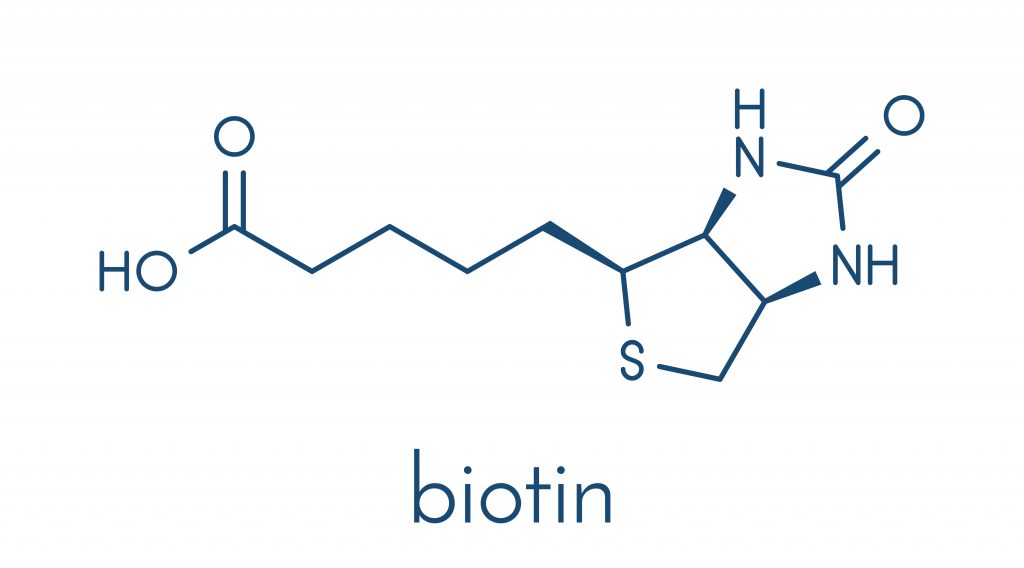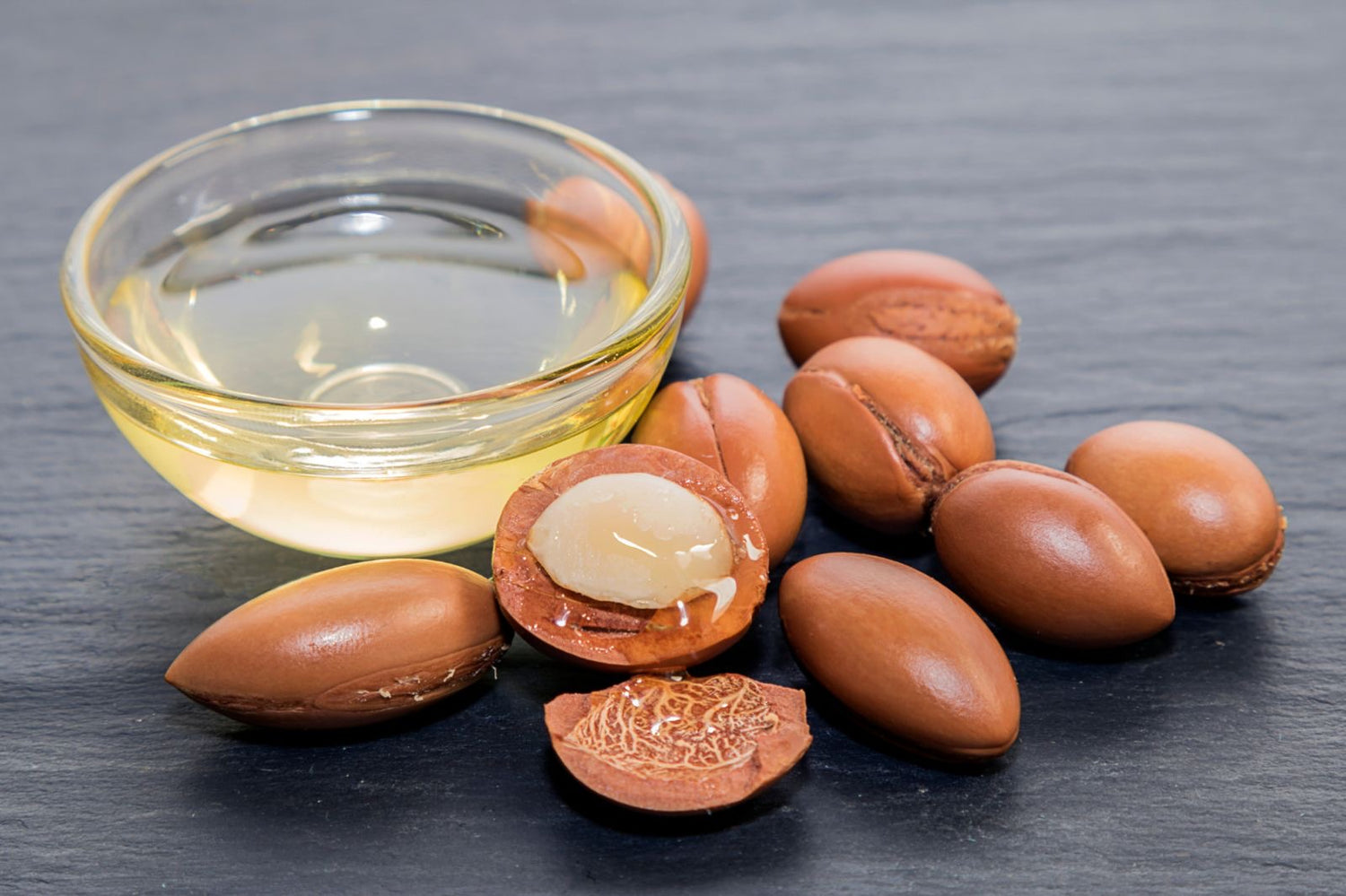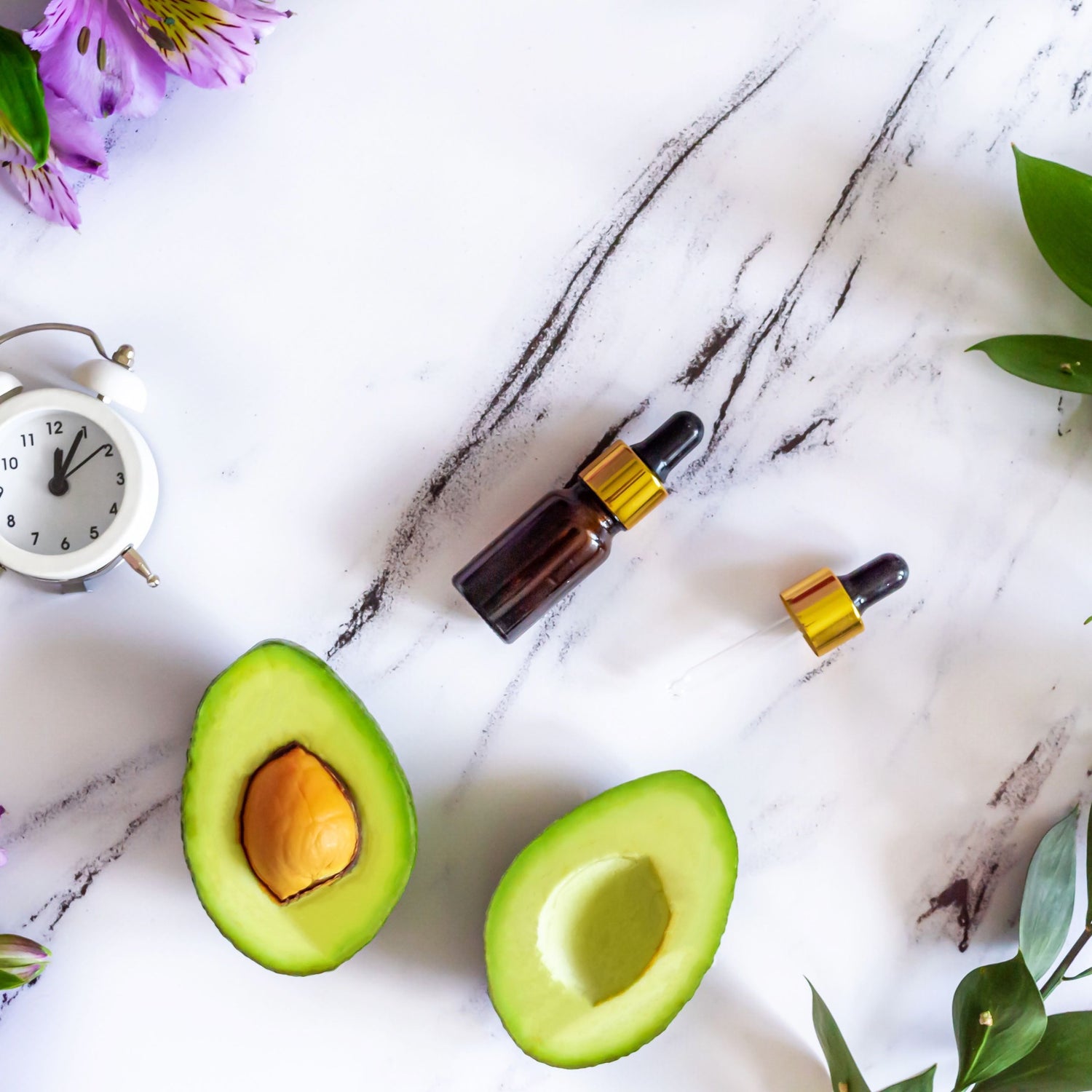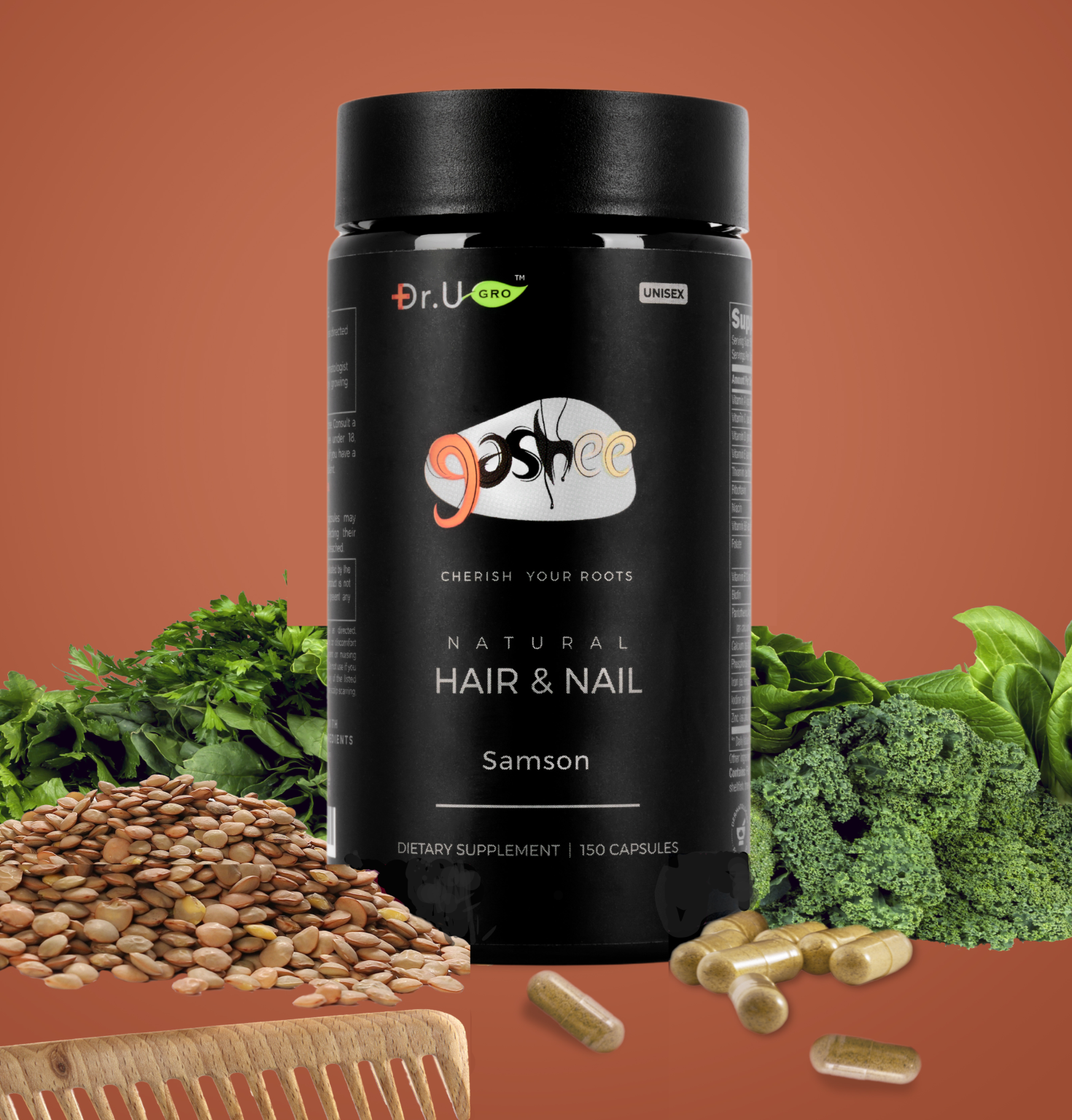What is Biotin?
Also known as “vitamin B7”, is a water-soluble vitamin of the vitamin B complex family. It is a vital part of a healthy metabolism, digestive system, and nervous system. Biotin for hair, also called Vitamin H (i.e., hair), plays a major role in strengthening strands and hair follicles. Biotin is derived by consuming natural biotin-rich foods as a food supplement as part of a multivitamin complex.
Natural Sources of Biotin
Biotin is often found in common foods such as liver, egg yolk, and yeast. However, only 1 out of 8 types of biotin is found in edible sources. Here are examples of common food sources considered to be rich in biotin:
- Liver
- Eggs
- Yeast
- Salmon
- Cheese
- Avocado
- Raspberries
- Cauliflower
- Whole Grain Bread
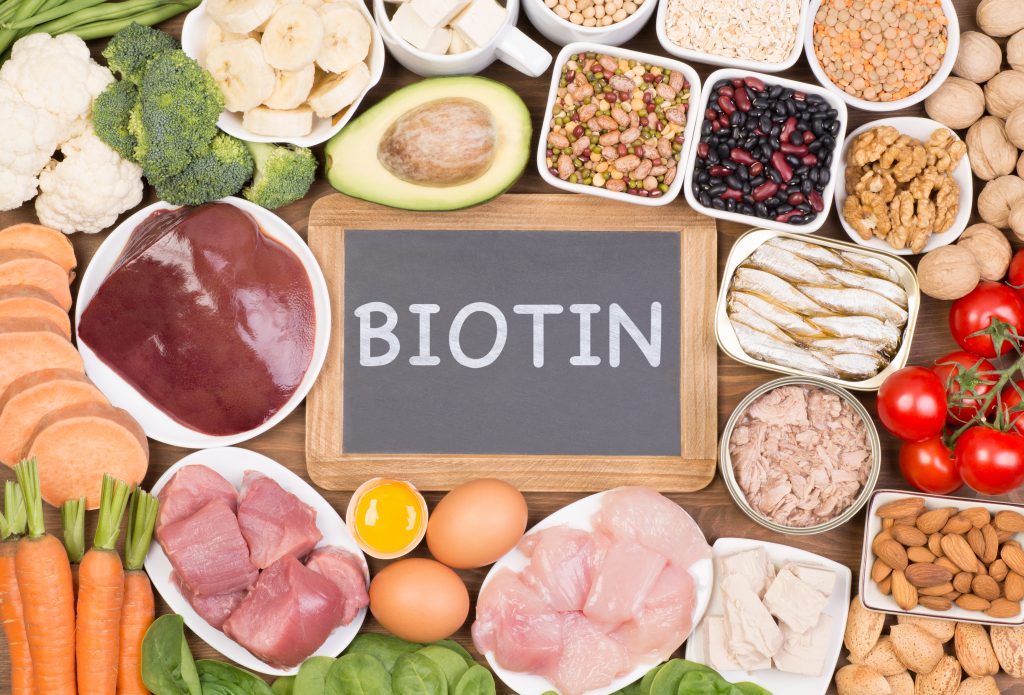 Biotin is found in several foods such as liver, eggs, yeast, salmon, cheese, avocado, raspberries, cauliflower, and whole-grain bread.
Biotin is found in several foods such as liver, eggs, yeast, salmon, cheese, avocado, raspberries, cauliflower, and whole-grain bread.Biotin for Hair - Potential Benefits
Biotin (Vitamin B7) is known to maintain healthy skin, hair, and nails. Although biotin deficiency is considered rare in the USA, lacking biotin will lead to hair loss symptoms, thinning hair, splitting and brittle hair, and dry skin (1)(4). Therefore, many people take biotin supplements to enhance the general health of their hair, skin, and overall physiology. Research is starting to show a strong relationship between biotin and more optimal hair health. But at this point, it can be considered more of a contributor to improve the general well-being of the hair follicles and skin.
Biotin For Hair Loss Findings in Research
Hair loss can be embarrassing and stressful. It affects both men and women of different ages all around the world. More and more people who suffer from hair loss are constantly reaching for natural solutions. There are a lot of myths online about biotin’s uses. However, as mentioned earlier, limited research has been done to provide direct evidence between biotin and hair loss treatment.
Biotin For Hair Growth - What Are Scientists Finding?
A 2010 study reviewed the key nutritional factors associated with hair loss in long-term parenteral nutrition patients. Even though it’s not common to be biotin deficient, deficiencies with this nutrient could manifest as hair loss. Therefore, eating foods rich in vitamin H or taking the biotin supplement could prevent hair loss by providing necessary agents to keep hair follicles in their healthiest state.
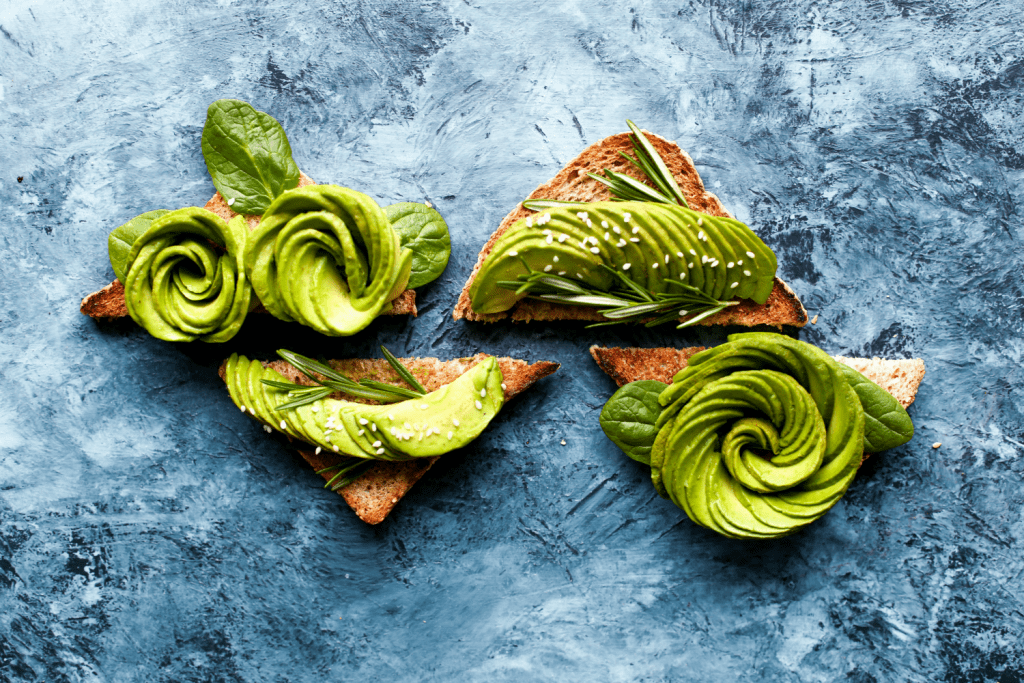
Biotin for Hair Regrowth in Sheep
In another in-vitro study, biotin was found to maintain the sustainability of secondary hair follicles in sheep and promote hair growth (3). As the results indicated, supplementation increased the proportion of secondary hair follicles continuing to grow. Thus, biotin likely provided the nutritional elements that the hair follicles needed to reach more optimal health states. It is important to note that this study researched the growth of sheep hair follicles. Thus it is not certain how closely these findings would apply to human hair. Concentrations ranging from 0.0001 up to 0.6% are generally safe for cosmetic use on humans (2).
What Does Biotin Do For Hair Loss?
To sum up, biotin for hair plays a major role in maintaining its overall health. Lacking it is likely to contribute to hair loss. However, future research on biotin’s effect on human hair growth should clarify its mechanisms. Despite the many observed benefits of biotin for strengthening hair, this vitamin alone is not enough. It’s a vital part of the bigger picture. Have a healthy diet rich in protein, vitamins, and minerals that give overall nutrition for your hair follicles to promote healthy hair growth.

Does Biotin Have Side Effects?
There are no significant side effects of biotin. There are three main ways to take this substance: oral supplements, skin application, and injection. For all methods, biotin is safe to use for most people when taken in appropriate doses. Pregnant and breastfeeding women and children are also able to take biotin orally. It is recommended to speak to a doctor before determining the dose and usage frequency. Those with kidney dialysis or smoking habits can have low biotin levels. People with these conditions may need to increase consumption.
Safety Profile
The Environmental Working Group scored biotin a 1 (green) on the safety hazard scale, indicating little signs of risks in the ingredient. Some of its reports include:
- Not an environmental toxin
- Safe to use in limited amounts in food
- Not expected to be toxic to the organ or reproductive systems
- Not suspected to be persistent or bioaccumulative
All-Natural Products Containing Biotin
Dr.UGro Gashee hair products are carefully formulated to enhance hair health through a combination of botanical ingredients, including biotin. These eco-friendly products are designed by Dr. Sanusi Umar, a board-certified dermatologist and hair transplant specialist, to promote natural hair growth. Dr. Umar’s innovative cold-formulated products suit everyone — regardless of hair type, ethnic background, and age. A 2021 study tested the effects of Gashee products on patients suffering from hair loss. The study presented three hair products — a hair lotion, pomade, and supplement — containing a mixture of phytoactive ingredients, including biotin. According to the research, the plant-based ingredients and the cold-formulation technique positively responded to hair loss and balding patterns. All patients who participated in the study had drastic improvements in hair growth.
VIDEO: Gashee User Ecstatic Over Hair Growth Results
Ana experienced severe hair loss after completing chemotherapy for breast cancer. Despite the many attempts, nothing seemed to improve her hair health and growth — until she discovered Gashee. Learn more about her experience below!
Frequently Asked Questions: Biotin for Hair
How much biotin should I take orally per day?
While not an official recommended daily amount of B7 exists, many sources suggest that adults should aim for 30 micrograms (mcg) per day. Since all B vitamins are water-soluble, the body flushes away any excess amounts. However, a carefully formulated hair product, applied topically, may provide a more direct path to the hair follicles, thereby avoiding consuming toxic amounts of vitamins.
What are the general symptoms of biotin (Vitamin B7) deficiency?
Biotin deficiency is rare in the USA, but it shows the following symptoms when it happens:
- Dry, irritated skin
- Brittle hair or hair loss
- Lack of energy or chronic fatigue
- Digestive and intestinal tract issues
- Muscle aches and pains
- Nerve damage
- Mood changes
- Cramps
- Tingling in the limbs
- Cognitive impairments
If you think you may have a biotin deficiency, consult your physician on the best course of action.
References
- Daniells S, Hardy G. Hair loss in long-term or home parenteral nutrition: are micronutrient deficiencies to blame? Curr Opin Clin Nutr Metab Care 2010;13(6):690-7.
- Fiume MZ, Cosmetic Ingredient Review Expert Panel. Final report on the safety assessment of biotin. Int J Toxicol 2001;20 Suppl 4:1-12.
- Galbraith H. In vitro methodology, hormonal and nutritional effects, and fiber production in isolated ovine and caprine anagen hair follicles. Animal 2010;4(9):1482-9.
- Zemplen J, Hassan YI, Wijeratne SSR. Biotin and biotinidase deficiency. Expert Rev Endocrinol Metab 2008;3(6):715-24.
- Sanusi Umar, Marissa J. Carter, "A Multimodal Hair-Loss Treatment Strategy Using a New Topical Phytoactive Formulation: A Report of Five Cases", Case Reports in Dermatological Medicine, vol. 2021, Article ID 6659943, 12 pages.


